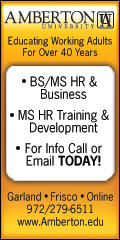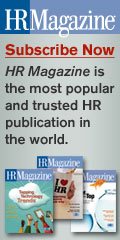
| Archives/Subscribe | Advertise | HR Matters | www.texasshrm.org |
IT’S A NEW DAY – Why Employers Should Prepare for Labor Relations Changes The Posting Requirement The new federal notice informs employees that they have the right to, among other things: · Organize a union to negotiate about wages, hours, and other terms and conditions of employment; · Form, join or assist a union; and · Discuss their terms and conditions of employment or union organizing with their co-workers or a union. It also provides contact information for the NLRB, along with a list of unlawful employer conduct. A full copy of the new notice can be obtained at nlrb.gov. Although there is pending litigation that questions whether the NLRB has authority to impose a posting requirement, employers should proceed as if the requirement will go into effect as scheduled on April 30, 2012. That includes getting educated on the new posting requirement to determine how, when, and where to post, as well as understanding the legal parameters surrounding communications with employees in connection with the posting. Employers should also consider training managers and supervisors, and taking other steps as part of a broader legal compliance program. Quickie Elections The NLRB’s second rule will shorten the time for a union representation election. The new rule will significantly change the process for contesting petitions for union elections and will limit an employer’s opportunities to challenge the process before an election is held (e.g., by giving the NLRB hearing officer authority to limit the pre-election hearing to matters relevant to "question[s] concerning representation" and by consolidating appeals to the NLRB regarding pre- and post-election conduct into one post-election "request for review" appellate procedure). The new rule will also limit an employer’s opportunity to communicate with its employees over issues of union representation before a vote is taken. Employers who are not prepared for an accelerated election and who do not have a comprehensive preventive labor relations approach will be at a disadvantage. Social Media and Other HR Policies Section 7 of the NLRA allows employees to engage in protected concerted activity regarding the terms and conditions of their employment. Recent NLRB decisions expand employee rights and may call into question certain HR policies. For example, the Board has ruled that certain social media policies prohibiting employees from disparaging the employer on social media sites violate the NLRA. As a result, employers should review social media and electronic communication policies to ensure they reflect recent Board interpretations and are not construed to prohibit protected concerted activity. Employers should also review their handbooks, and in particular policies that govern employee access, communications with outside media, dress codes, confidentiality, non-disparagement, computer policies, and so on, taking recent NLRB interpretations into account. What To Do As April 30, 2012 approaches, and as the NLRB applies section 7 rights to a modern workplace, now is the time for employers to consider proactive compliance strategies. It is more important than ever for employers to consider a comprehensive preventive labor relations program that includes, at the very least, the following: (1) lawful employer communications about the company’s position on unions, (2) supervisor training to ensure compliance with the law when having such discussions and/or during union organizing, (3) bargaining unit analyses (for example to determine who is a supervisor), and (4) legal analysis and development of best HR practices, including lawful employment policies and procedures, consistent with changes in the law. Kristin Bauer and Christopher Antone are Dallas-based partners in the national labor and employment law firm Jackson Lewis. Editor’s Note: This article is provided for informational purposes only and is not intended as legal advice. Readers should consult counsel of their own choosing as to how these matters relate to their own situations. |
P.O. Box 8058
Tyler, Texas 75711
www.texasshrm.org • info@texassshrm.org • 214-354-8740

